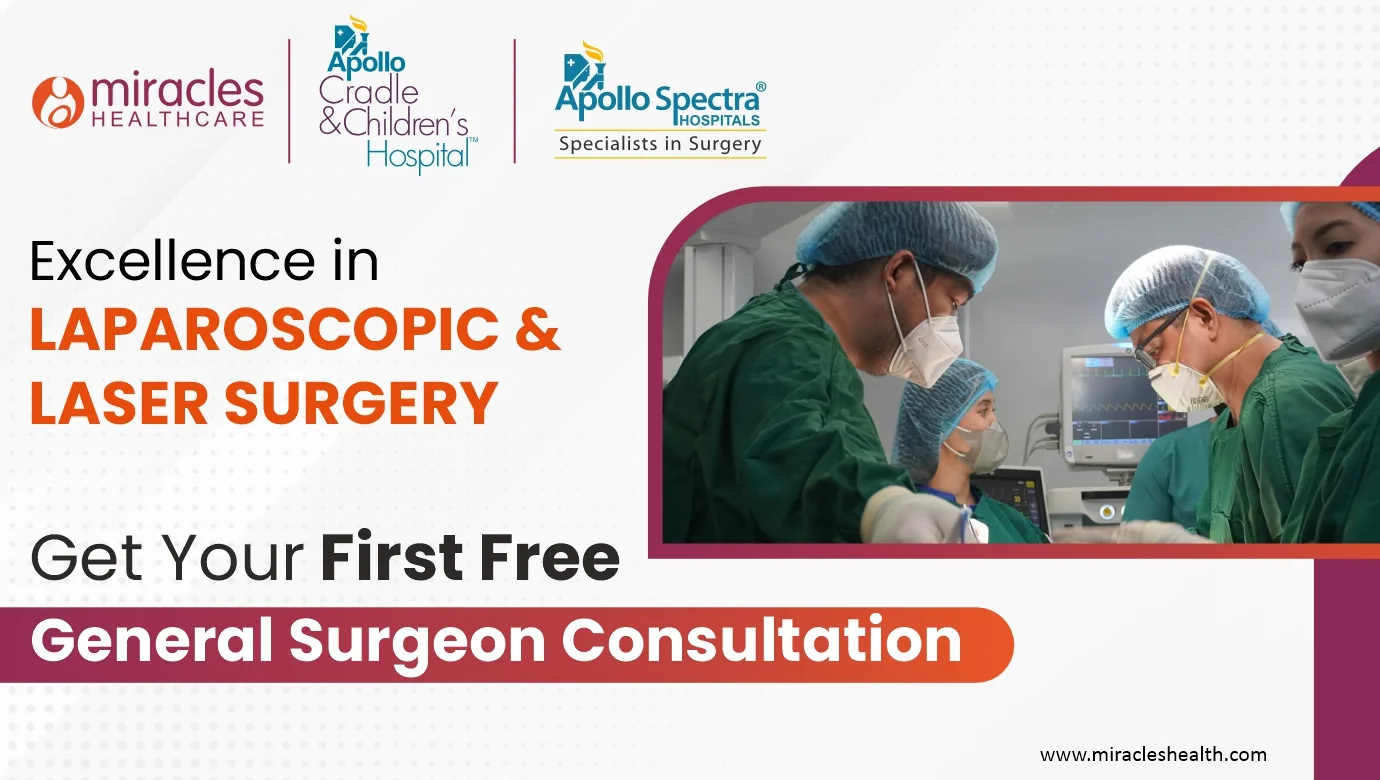General Surgery Conditions We Treat
Comprehensive Care for Your Health

Anal fistula surgery is a medical procedure to treat an anal fistula, a small, abnormal tunnel that develops between the skin near the anus and the inside of the anal canal. This condition usually develops due to an infection in the anal glands, leading to painful abscesses that can become chronic if left untreated. This surgery is the most effective solution to permanently treat the fistula and prevent further complications.
Anal fistula surgery is a surgical procedure aimed at removing or repairing the abnormal passage (fistula) that links the anal canal to the skin around the anus. There are different techniques to treat anal fistulas, including traditional surgery, laser surgery, and minimally invasive methods. The type of surgery performed depends on the severity and location of the fistula, and other factors related to the patient's health.
Surgery is usually the most effective treatment for an anal fistula, especially when it causes discomfort, pain, or recurring infections. The goal of the surgery is to eliminate the fistula while minimizing damage to the surrounding tissue.
Anal fistula surgery is performed to:
Remove the infection: The main reason for surgery is to treat the infection caused by the fistula.
Prevent recurrence: Surgery helps prevent the fistula from coming back and causing further complications.
Improve quality of life: Anal fistulas can cause persistent pain, discomfort, and drainage. Surgery can provide relief from these symptoms and improve overall well-being.
Avoid complications: If left untreated, anal fistulas can cause more serious complications, such as abscess formation, spreading infections, or incontinence.
Candidates for anal fistula surgery include individuals who:
Have been diagnosed with an anal fistula: A general surgeon diagnoses the condition after a thorough examination, which may include an MRI or ultrasound to determine the size and location of the fistula.
Have not responded to other treatments: If antibiotics or drainage procedures have not resolved the problem, surgery may be necessary.
Experience recurrent or persistent symptoms: Individuals with persistent pain, drainage, or discomfort from a fistula are usually recommended for surgery.
Are in good overall health: Although anal fistula surgery is generally safe, good health helps ensure better outcomes and faster recovery.
To prepare for anal fistula surgery, your surgeon will give you detailed instructions, which may include:
Pre-surgery examination: A complete medical evaluation to ensure you are healthy enough for surgery.
Fast before the surgery: You may be instructed to avoid eating or drinking for several hours before the procedure to ensure safety during anesthesia.
Medications: You may be prescribed antibiotics to prevent infection and advised to stop taking certain medications, such as blood thinners, before the surgery.
Anal fistula surgery is tailored to the type, location, and complexity of the fistula. Several surgical methods are available, each designed to provide the best results while minimizing discomfort and recovery time. The most common approaches include:
Fistulotomy: Fistulotomy is the most common and straightforward method for treating an anal fistula. In this procedure, the surgeon carefully opens the fistula tract to allow it to heal from the inside out. This process helps eliminate the infection and closes the fistula, providing relief from symptoms. A fistulotomy is generally suitable for simple fistulas and is highly effective.
Seton Placement: For more complex fistulas, a seton is usually used. A seton is a surgical thread placed through the fistula tract to keep it open for continuous drainage. This method allows the infection to drain while the fistula heals gradually. Seton placement is typically used in cases where a fistulotomy would damage the anal sphincter muscles.
LIFT (Ligation of Intersphincteric Fistula Tract): LIFT is a minimally invasive technique that involves cutting the fistula tract while carefully preserving the anal sphincter muscles. This method reduces the risk of incontinence and is useful for complex fistulas that pass through or near the anal muscles. The surgeon isolates and ligates the fistula tract, ensuring a safe and effective healing process.
Flap Surgery: Flap surgery is reserved for the most complex anal fistulas, especially those that are high or involve the anal sphincter muscles. In this procedure, the surgeon covers the fistula opening with a flap of tissue taken from a nearby area. This method promotes healing by closing the fistula and protecting the surrounding tissue.
Laser Anal Fistula Surgery: Laser anal fistula surgery is an advanced, minimally invasive technique that uses laser energy to treat the fistula. The surgeon uses a laser fiber to vaporize the fistula tract and remove the infection, while simultaneously sealing the tissue to promote healing. This method is precise, reduces the risk of complications, and generally results in a faster recovery time compared to traditional surgery. Laser surgery is ideal for patients who have a fistula that is not too complex and want to avoid a long recovery period or potential damage to the sphincter muscles.
The appropriate surgery for anal fistulas depends on factors such as the type, complexity, and location of the fistula, as well as the patient's overall health. A consultation with a skilled surgeon is necessary to determine the best treatment plan tailored to your condition.
By selecting the right surgical approach, patients can achieve long-term relief from anal fistulas while minimizing complications and recovery time.
Recovery after anal fistula surgery varies based on the complexity of the procedure, but most people can expect:
Pain management: Pain is common after the surgery, but it can be controlled with prescribed medications.
Wound care: Keeping the surgery site clean is important to avoid infection. Adhere to your surgeon's guidelines for proper wound care and hygiene.
Dietary modifications: A high-fiber diet and plenty of fluids can help prevent constipation, which can strain the surgical site.
Follow-up visits: Regular check-ups are essential to ensure the fistula is healing properly and to detect any potential complications.
Most patients can return to normal activities within a few weeks, although full recovery may take 6–8 weeks depending on the type of surgery performed.
The cost of anal fistula surgery can vary based on several factors:
Hospital or clinic fees: The facility where the surgery is performed can impact the cost.
Surgical complexity: More complex procedures like flap surgery may cost more than simpler options like fistulotomy.
Anesthesia and medications: The type of anesthesia and post-surgical medications can contribute to the overall cost.
Location: The cost may also vary depending on the city or region where the surgery is performed.
Consult with a general surgeon near you for a detailed estimate based on your specific condition and needs.
Miracles Apollo Cradle/Spectra is the best hospital for anal fistula surgery in Gurgaon, providing expert care for anal fistula surgery. Our experienced surgeons use the latest surgical techniques to ensure a successful outcome and a smooth recovery. We prioritize patient comfort and provide personalized care throughout the entire process, from pre-surgery preparation to post-surgery follow-up.
If you are dealing with an anal fistula and are considering surgery, trust Miracles Apollo Cradle/Spectra for the highest quality care. Contact us today to schedule a consultation with a general surgeon in Gurgaon and discuss your treatment options.


Comprehensive Care for Your Health
Meet our expert team of General Surgeon where compassionate care meets expertise.
Inspiring Journeys: True Patient Stories
Miracles Apollo Cradle is a leading Maternity Hospital Gurgaon. We strive to give the best care to our patients.






Your Health, Our Network: Comprehensive Care Across Every Facility.
Learn about the world class health care we provide
Expert Advice and Health Tips
Learn about the world class health care we provide
Fistula surgery is generally considered a minor to moderate procedure, depending on the complexity of the fistula.
Some pain and discomfort are common after surgery, but they can usually be managed with pain medications.
Yes, with proper surgery, an anal fistula can be permanently cured, though some cases may require multiple treatments.
Recovery typically takes 4 to 6 weeks, but it may vary depending on the surgical method and individual healing.
The best surgery depends on the type and complexity of the fistula, but laser surgery is often preferred for its minimally invasive nature and quick recovery.